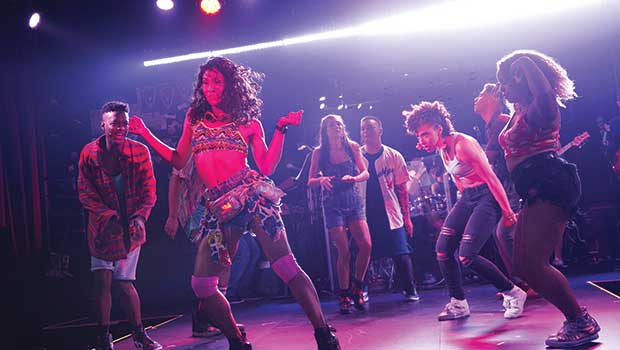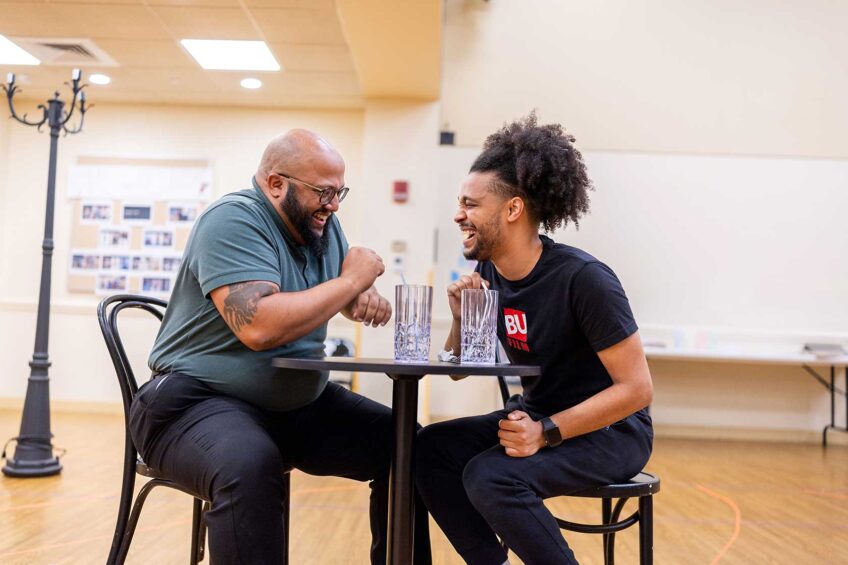
“Burn All Night,” in its world premiere at the American Repertory Theater’s Oberon stage on Arrow Street in Cambridge, speaks to anyone who has wandered the messy, difficult path of growing up. The immersive musical, playing until Sept. 8, loosely follows four young creatives in New York City on the eve of a series of world-ending earthquakes.

Author: Evgenia EliseevaAshley LaLonde and the cast of “Burn All Night” warm up before rehearsal.
On the Web
For more information and for tickets to “Burn All Night,” visit: http://americanrepertorytheater.org/events/show/burn-all-night
Directed by Jenny Koons (“A Sucker Emcee,” “In This Moment”) and choreographed by Tony nominee Sam Pinkerton (“Natasha, Pierre & the Great Comet of 1812”), the story starts traditionally enough. Bobby, played by Lincoln Clauss, boards a bus to New York, leaving his claustrophobic suburban life behind. Clauss strikes the perfect chord of naivety and perseverance in his actor-wannabe character. Bobby meets up with his long-lost childhood friend Holly (Krystina Alabado), an artist-turned-advertising executive.
The plot that follows, full of romance, recreational drugs and the confusing trappings of coming of age, is almost less important than the feeling given to the audience. Much of the storyline occurs at clubs and parties during nights of wild escape. And that’s exactly what this is. “Burn All Night” at once illustrates our need to escape our problems while providing the opportunity to do so.
Audience members can stand on the dance floor and participate actively in the show, busting moves with the cast and letting the electronic beats of Teen Commandments wash over them. At the start of the performance, M.J. Rodriguez, of “Transgendered Part I: The Women,” invites the audience to “be with us, dance with us and drink with us.”
Though an escape, “Burn All Night” is a very of-the-moment piece. The most vivid parallels exist between our imploding political situation and uncertain environmental future and the apocalyptic tune of the show. But the culture is there as well.
The ensemble, diverse in gender, race and personality, reflects a contemporary world fighting to be inclusive. These “kids” set the scene even more so than the main characters. They’re constantly on cell phones, taking selfies, texting and, as one kid proclaims, using their electronics as a way to “be alone when I can’t be alone.” Rodriguez slays as an unofficial narrator, physically and musically moving the show along. Marquis Johnson deserves a mention as well, for having hips more honest than Shakira.
When the apocalypse strikes, almost no one is where they want to be. Their affairs are not in order. Their wrongs haven’t been righted. Bobby and Holly never fully resolve their issues and there’s no pretty bow tied on the plot at the end of the show. Likewise, when the lights come up — and they always do — we pick up our baggage on the way out.







